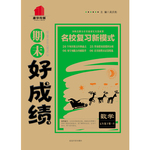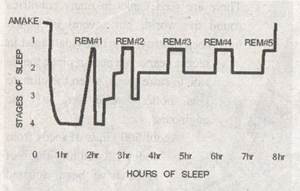
 期末好成绩系列答案
期末好成绩系列答案 99加1领先期末特训卷系列答案
99加1领先期末特训卷系列答案 百强名校期末冲刺100分系列答案
百强名校期末冲刺100分系列答案 好成绩1加1期末冲刺100分系列答案
好成绩1加1期末冲刺100分系列答案 金状元绩优好卷系列答案
金状元绩优好卷系列答案科目:初中英语 来源: 题型:阅读理解
| A.Because he thought playing the violin was useless. |
| B.Because his father thought playing the violin would cost lots of money. |
| C.Because his father thought he couldn't play the violin well. |
| D.Because his father thought he couldn't make his dream come true. |
| A.Gold always shines no matter where it is. |
| B.He is an excellent violinist. |
| C.He doesn't play the violin very well. |
| D.If he sells gold, he will make a lot of money. |
| A.Angry. | B.Excited. | C.Modest. | D.Worried. |
| A.Without a good teacher, one can't succeed. |
| B.The critic's advice helped Ole Bull a lot. |
| C.Ole Bull got success after many years' hard practice at last. |
| D.The critic helped Ole Bull find a famous teacher. |
| A.Becoming a violinist can make a lot of money. |
| B.When we meet problems, we should learn to face them. |
| C.Old Bull was a famous American pianist. |
| D.You can be famous easily if you play the violin. |
查看答案和解析>>
科目:初中英语 来源: 题型:阅读理解

查看答案和解析>>
科目:初中英语 来源:2013-2014学年江苏省扬州市九年级上学期期中考试英语试卷(解析版) 题型:阅读理解
A punctual person is in the habit of doing a thing at the correct time and is never late for anything.
An unpunctual man never does what he has to do at the right time. He is always in a hurry and in the end loses both time and his good name. A lost thing may be found again, but lost time can never be got back. Time is more useful than material(物质) things. In fact, time is life itself. An unpunctual man is always wasting his most important things as well as others’. An unpunctual person is always saying unhapppily that he finds no time to answer letters or return calls. But the man who really has much to do is very careful of his time. He knows that he can not finish all his work unless he carefully does every piece of work.
Being unpunctual is the sign of disrespect(不尊重) towards others. If a person is invited to dinner and arrives later than the time when he should be there, he keeps all the other guests waiting for him. Usually this will be thought as a great disrespect to the host and all the other guests.
Not like a punctual person, an unpunctual one can’t do his duty wonderfully, whether it is public or personal. Imagine how it would be if those who should do important tasks failed to be on time. A man who is known to be often unpunctual is never believed by his friends or fellow men.
1.The Chinese meaning of the word “punctual” in this passage is probably “______”
A. 听话的 B.守时的 C.守纪律的 D.能干的
2.Which of the following is TRUE according to the passage?
A. An unpunctual person often has more time.
B. An unpunctual person has more work to do.
C. A punctual person often has a busy life.
D. A punctual person often does his work wonderfully.
3. When you are invited to dinner, you’d better arrive there ______.
A. in a hurry B. after the host C. at a decided time D. before other guests
4.From the passage, we learn that an unpunctual man usually ______ in the end.
A. s aves
time for
others
B. leaves his family and friends
aves
time for
others
B. leaves his family and friends
 C. gets his chances and
knowledge D. loses his time and good name
C. gets his chances and
knowledge D. loses his time and good name
查看答案和解析>>
科目:初中英语 来源:2011年河南省中考英语模拟压轴试卷(一) 题型:阅读理解
Ole Bull was a very famous violinist from Norway. He really liked to play the violin. But his father thought that playing the violin was not useful. So his father sent him to university to study. However, playing the violin was his dream. He didn’t want to give up his dream. So he left university before he finished his studies and spent all his time and energy practicing the violin. Unfortunately, his violin teacher was not very good. So when it was time for him to start his concert tour, he still couldn’t play the violin very well.
Therefore, a Milan newspaper critic1 criticized him and said that he was an untrained violinist. The critic said, “If he is gold, he is not ready to shine2 yet.”
When facing this kind of problem, some people may become very angry and some people try to learn from it. Fortunately, Ole Bull belonged to the second group. He went to the newspaper office and found the critic. Instead of being angry, he talked about his mistakes with the man and listened to the man’s advice.
After he met the critic, he gave up the rest of his concerts. Then he went back to practice the violin with the help of good teachers. In the end, he got great success when he was only 26. He also became one of the most famous violinists in the world.
1.Why didn't Ole Bull's father like him to play the piano?
A. Because he thought playing the violin was useless.
B. Because his father thought playing the violin would cost lots of money.
C. Because his father thought he couldn't play the violin well.
D. Because his father thought he couldn't make his dream come true.
2.What does the underlined part "If he is gold, he is not ready to shine yet." mean?
A. Gold always shines no matter where it is.
B. He is an excellent violinist.
C. He doesn't play the violin very well.
D. If he sells gold, he will make a lot of money.
3.What was Ole Bull's attitude towards the critic's article?
A. Angry. B. Excited. C. Modest. D. Worried.
4.Which of the following is NOT true according to the passage?
A. Without a good teacher, one can't succeed.
B. The critic's advice helped Ole Bull a lot.
C. Ole Bull got success after many years' hard practice at last.
D. The critic helped Ole Bull find a famous teacher.
5.What can we learn from the passage?
A. Becoming a violinist can make a lot of money.
B. When we meet problems, we should learn to face them.
C. Old Bull was a famous American pianist.
D. You can be famous easily if you play the violin.
查看答案和解析>>
科目:初中英语 来源:2013届江苏省无锡市南长区八年级上学期期中考试英语卷 题型:完型填空
完形填空(10分)
We went to play against a team from a country school. They didn’t come 1 the match began. They looked 2 than we thought. They wore dirty T-shirts and blue jeans and looked like farm boys. We thought they 3 saw a basketball before. We felt that we didn’t 4 any practice to play with such a team. It was very late so they couldn’t have any time to practice. The match began. One of our boys 5 the ball and he tried to give it to another one. But from out of nowhere a boy in a T-shirt 6 the ball and he quickly and beautifully got the ball into our basket and had two points. They 7 us because they had another two points in a minute. Soon it was all over. The country team 8 the match. Of course we knew that there was still another team 9 than any good team. But the important lesson we learned this time was: One can’t tell a man or a team by the 10 .
( ) 1. A. when B. so C. until D. at
( ) 2. A. stronger B. younger C. worse D. better
( ) 3. A. never B. often C. sometimes D. always
( ) 4. A. have B. make C. use D. need
( ) 5. A. got B. played C. took D. carried
( ) 6. A. caught B. changed C. held D. kicked
( ) 7. A. laughed B. frightened C. admired D. smiled
( ) 8. A. lost B. won C. got D. had
( ) 9. A. worse B. less C. better D. more
( )10.A. T-shirt B. appearance C. name D. points
查看答案和解析>>
湖北省互联网违法和不良信息举报平台 | 网上有害信息举报专区 | 电信诈骗举报专区 | 涉历史虚无主义有害信息举报专区 | 涉企侵权举报专区
违法和不良信息举报电话:027-86699610 举报邮箱:58377363@163.com